Starting this Wednesday (08), the Science Woods (Bosque da Ciência) is offering an inclusive choice to its deaf visitors with the launching of the Inclusive Touristic Itinerary App to Deaf People, developed by the Amazonas State University (UEA), with the partnership of the startup company Map Innovation and its app “Giulia -hands that speak” and the support of the Samsung Ocean Center.
Born from a research project of a student, Thiago Souza, from UEA’s Tourism Course, advised by Prof. Dr. Selma Batista, the inclusive app at Bosque da Ciência represents a historical moment to the State of Amazonas, as the 1st place to offer such inclusive touristic app to deaf people.
Thiago Souza developed the project from his concern about the lack of accessibility for the people in some touristic spots in the city. “It was from one researchers experience with a deaf person during a visit. The researcher had difficulties to translate all the ideas she wished for to present to the visitor. This concern touched me in a way so that this research was born,” he explained.
Counting with the help of a Brazilian Sign Language (LIBRAS) translator, Augusto Carneiro, a student from the State School Augusto Carneiro dos Santos, Laisa Moraes, told how it was to enjoy the tour at Bosque being guided by the Inclusive Touristic Itinerary App. “Here we have an important place that was not accessible to us. So, we as other groups of deaf students regretted for not having translators, but now, the app is able to help us.
The inclusive app can be applied in other initiatives
To the Vice-Rector of UEA, Cleto Leal, the integration of the participant institutions in the building of the Roteiro App is essential to this inclusive initiative, which is able to expand to other events, exhibits, touristic spots and to the inner cities. “This helps define the necessary ways to promote the teaching of LIBRAS, guiding the ideas and solutions to the improvement of our society,” he highlighted.
According to the Prof. Dr. Rita Mesquita, from the National Institute of Amazonian Research (INPA), this is the first public space that has a natural route prepared for deaf people, and it substantiates the leadership of UEA in the field. “This research knowledge has been communicated and will transform lives. The trend is to have more inclusive policies.”
To the creator of “Giulia – Mãos que Falam”, Prof. Manuel Cardoso, the humanistic aspect of the project helped in the comprehension of the complexity of the daily life of deaf people. “The absence of communication is extremely cruel, and the isolation causes the lack of basic things of citizenship, from problems of accessibility in hospitals and police stations to all the other environments,” he concluded.
Translation: Maristela Silva






